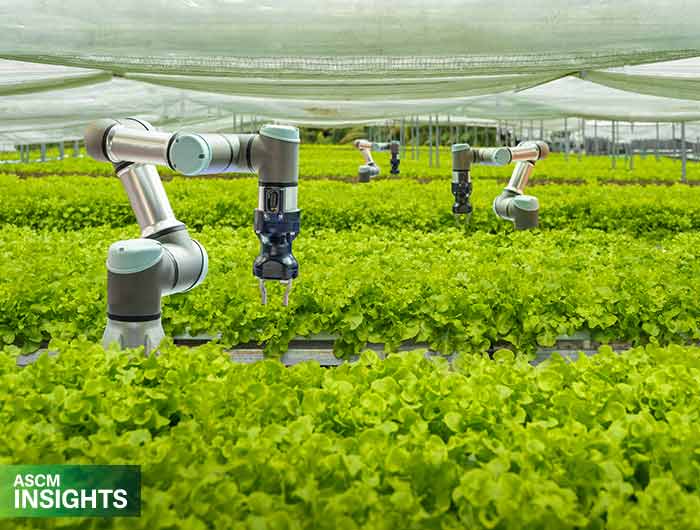Once a realm of manual processes and limited visibility, supply chains everywhere are embracing cloud platforms, robotics, the internet of things, artificial intelligence and numerous other exciting digital technologies. These powerful tools streamline operations, optimize inventory and help predict demand — revolutionizing supply chain management and fueling the development of ever-more advanced solutions. The future of our industry is brimming with potential for unprecedented efficiency and agility.
For instance, in the news this week is a gigantic 3D printer that is “reinventing manufacturing,” per Fast Company. The thermoplastic-polymer printer can create objects as large as 96 feet long, 32 feet wide and 18 feet high. It prints as much as 500 pounds of material per hour — enough to produce a 600-square-foot house in less than four days. Better yet, it does this using renewable biomaterials and even waste products such as sawdust. There are quality control checks integrated into the system, including AI-powered sensors that ensure printing precision and self-correct if gaps become too large or pieces get out of alignment.
3D printing has many potential applications, notes Supply Chain Digital, including reducing complexity, increasing speed to market, reducing global impact and enabling remote locations to print replacement parts. Cost reduction is a noted benefit, as well.
Another technology that’s making a big impact these days is, of course, AI. In fact, according to a McKinsey survey, companies say that the most significant AI-related cost savings exist in their supply chain organizations. As an example, Coca-Cola just signed a $1.1 billion agreement with Microsoft to use the tech company’s AI services to explore “improving the customer experience, streamlining operations, fostering innovation, improving competitive advantage, boosting efficiency and discovering growth opportunities,” reports Supply Chain Dive. The contract comes just four years after their last $250 million deal, showing that both parties are excited about the direction generative AI has taken in a short period of time.
Correspondingly, the makers of generators and batteries for the data centers powering AI models are having a boom, reports The Wall Street Journal. In fact, over the past year, orders for data-center electrical gear have more than doubled, alongside consumer demand for AI-enabled streaming services, online shopping and more. At Stream Data Centers in Chicago, the warehouse buildings “host thousands of servers, backed up by banks of batteries and diesel generators … [where] blips, sags, dips or anything else less than a smooth, continuous flow of electricity aren’t tolerated,” the article explains. Notably, today’s servers and computer chips require twice as much power per square foot than a decade ago.
Your tech expertise matters
Technological know-how is essential for supply chain professionals, which is why ASCM developed the Supply Chain Technology Certificate. With this credential, you’ll gain a comprehensive understanding of emerging technologies and their essential role in your networks. Learn how to propose innovative ways to improve supply chain functionality, evaluate the benefits and risks of specific solutions, and make informed decisions during implementation. Start exploring transformational technologies today, and you’ll quickly position yourself as a tech-savvy professional who creates lasting value.



